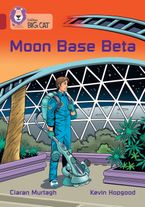One of the things about being a freelancer is the constant pressure to provide. You're never 100% sure where the next cheque is coming from so you say yes to everything.
It's all well and good choosing to live a precarious freelance existence - certainly in the creative industries - but it's quite another to bring a baby along for the ride. It meant I said yes to just about everything, regardless of whether it was a good career move or something I necessarily wanted to do. If it paid, I did it.
That baby is now approaching 27, but my approach to work hasn't mellowed much.
When the pandemic struck I felt the fear just about everyone in the country felt. However, for the freelancer it was tinged with the regular worry of - what if I never work again? I threw myself into work, saying yes to just about anything, and I am only now coming out of that frantic period.
Last year I head wrote, with my writing partner, five new series of television. That's about 200 episodes - I was responsible for delivering and writing. I also wrote on other people's shows. Totting it all up Andrew and I wrote or were responsible for about 225 episodes of TV. One a day.
I also had three books out last month and another one out next, so I was doing that too.
This month things have calmed down a bit, after the year or two I've had, it feels like I've gone from 90 miles an hour to a more sedate 45. I can take time to smell the flowers.
However, it doesn't stop me feeling like I should be working harder. It's hard to adjust to a new pace like that. It feels like someone has literally pulled the handbrake. Now the logical part of me is telling me it's healthy, you can't work at that rate forever, you'll burn out. But that nagging irrational bit of my brain is worrying again - what if the phone never rings, what if this is it, better get hustling Ciaran.
For now I'm doing my best to ignore it, and to be honest that voice can be a useful thing, it stops me sitting on my arse for extended periods, but the truth is it'd be nice to turn it off completely every once in a while. I'd like to enjoy a guilt free holiday without wondering what I'm missing, I'd like to sit and look out the window without beating myself up over the book I'm not writing or the idea I'm not developing.
I'm not sure that's ever going to happen, I'm the wrong sort of person in the wrong type of industry to allow that to happen, but strategies to dampen it down would be useful.
So come on creative freelancers - how do you deal with the guilt of not creating every moment of the day and stopping to smell the flowers?
In other news, I am taking part in Book Jive Live this month - it's a great opportunity to hear new voices and also ask me any questions you may have about any of the creative industries I participate in. Even better - all profits go to the Booktrust. Get your tickets here:
https://www.wegottickets.com/event/532457


















